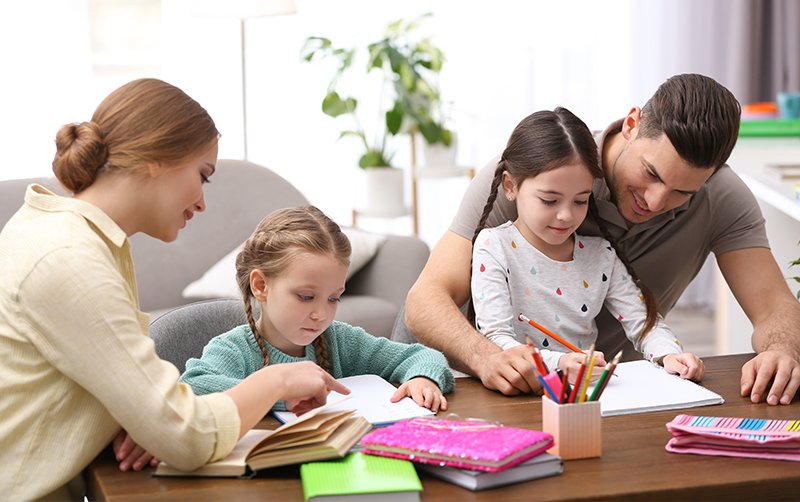As parents, our key job is to nurture and guide our kids. We want them to become self-assured and emotionally aware adults. But imagine a new path beyond ordinary ways, making both parent and child truly blossom. This is where conscious parenting steps in, changing the game for how we bring up our loved ones.
Finding the perfect way to raise aware, resilient kids might start with our own understanding of ourselves. What if by practicing conscious parenting, we unlock our family’s full potential? This method seeks to build deep, trusting connections. It aims to raise kids who are future leaders – thoughtful and confident.1

Key Takeaways:
- Conscious parenting stresses self-awareness, managing emotions, and mindfulness in family interactions.
- It urges parents to deeply know their beliefs, triggers, and how they talk to their kids.
- It promotes good discipline, really hearing your child, and nurturing their emotional intelligence.
- Being fully there, not judging, and taking care of yourself are key to making a supportive family space.
- Examples of conscious parenting include truly listening, solving issues calmly, and making choices together.
Understanding Conscious Parenting
Conscious parenting is based on parents understanding their own emotions and behavior first.2 This means looking at themselves and how they react. By doing this, parents can better respond to their children with love and understanding.
The Core Philosophy
The main ideas of conscious parenting are being aware, nonjudgment, and taking care of yourself.2 It asks parents to be fully there for their kids now, not stuck in the past or future. They should treat themselves and their children with respect and love, all while remembering to also take care of themselves.
Key Elements of Conscious Parenting
Conscious parenting focuses on being mindful and knowing yourself.2 Parents should pay attention to their own thoughts to be better parents. This helps them be there for their children, listening and understanding before reacting.
Mindfulness and Self-Awareness
Shefali Tsabary is a champion of conscious parenting. She has written some important books on this.3 A study in 2019 found that talking a lot and well to kids early on might make them smarter and less aggressive.3 Those who support conscious parenting think it might help kids know themselves better as they get older.3
Meditation is a big part of being a conscious parent. It can help with a lot of things, like stress and bad moods.3 This way of parenting also means parents should put their own wants aside sometimes. They should focus on being calm and balanced in how they guide their kids.3 This is different from using strict rules and focusing on punishing bad behavior.
Being a conscious parent is not always easy. It means always learning and trying to do better.3 Parents have to let their kids face some problems without stepping in right away.3 It can be hard at times, especially when safety is a big worry. But, this way of parenting believes in handling things as they come and always being there for your child.3
Conscious Parenting in Action
Conscious parenting highlights building emotional awareness in parents and kids. It means listening to how children feel. It involves showing kids their feelings matter and teaching them how to handle these emotions well.3 Parents aim to make a home where children are not afraid to share their emotions. Here, parents answer with understanding, not judgment. This approach helps children learn to understand and manage their own emotions. It’s key for them to have good relationships.
Positive Discipline Strategies
Discipline in conscious parenting leans towards positives. It aims to enhance the kid’s power and strengthen the bond between parent and child. Rather than punish, parents solve problems together. They set clear rules and let natural consequences teach lessons.4 The objective is to teach children to be disciplined and make good choices. All the while, parents keep a kind but firm position, which respects the child’s dignity.
Nurturing Parent-Child Connection
Nurturing a strong, true connection between parent and child is crucial in conscious parenting.4 Parents work hard to really listen to their kids and understand their needs. They respond with love and caring. They aim to have a home where everyone respects one another. This effort strengthens the bond. The family becomes a secure, close-knit place that helps children grow up happy and feeling safe.
Benefits of Conscious Parenting
Improved Communication and Relationships
Conscious parenting offers huge benefits, like better family communication and relationships. By using active listening, being in touch with emotions, and solving problems together, parents and children can form stronger bonds. This method also teaches children important skills for understanding and handling their feelings, solving arguments, and making friends.
Positive Impact on Child Development
Conscious parenting greatly improves how children grow and learn, particularly in their emotional and self-control skills. Through creating a safe space for children to express themselves and making them feel valued, parents nurture their child’s self-confidence and ability to regulate their emotions. This approach lays a solid groundwork for doing well in school, making friends, and achieving their dreams.
Reduced Parental Stress and Burnout
It not only benefits the kids but the parents as well, by lowering stress and exhaustion. By focusing on their own emotional well-being, self-care, and managing stress, parents become more prepared to handle the challenges of raising children. This leads to a healthier family dynamic, where everyone’s mental health and happiness are supported.
Challenges of Conscious Parenting
Conscious parenting requires being consistent and fully committed.1 It means always trying to understand yourself better. Being a mindful parent takes work and facing your own biases. It also involves setting clear rules for your child while understanding their feelings.
This journey involves continuous effort and a long-term view, despite daily struggles.1
Consistency and Commitment Required
There are societal pressures that make conscious parenting hard.3 Sometimes, the ways conscious parents raise their kids clash with tradition. This can lead to criticism from friends or others.
It’s essential for these parents to accept themselves and others, without judging. This helps them stay firm in their beliefs and actions.
Managing Societal Pressures and Expectations

Conscious Parenting vs. Traditional Parenting Styles
Authoritarian parenting is all about strict rules, harsh punishment, and controlling the child’s actions.5 In contrast, the conscious way focuses on empathy, teamwork, and boosting the child’s independence and emotions.1 Instead of using fear to make their kids behave, conscious parents choose gentle guidance and create a home filled with respect for everyone.
Permissive parenting takes a hands-off approach, giving kids lots of freedom with little guidance.4 Conscious parenting, on the other hand, values self-expression and freedom but pairs it with clear rules.1 It understands the need for kids to explore and grow but also to have steady support for their healthy growth.
Authoritative Parenting
Authoritative parenting is a balance, expecting a lot but also supporting and listening to the child.5 It’s quite similar to conscious parenting in that both stress good communication, working together to solve problems, and building a loving, respectful family. But, conscious parenting goes further by asking parents to deeply understand themselves.1 It encourages self-awareness and looking into your thoughts, feelings, and habits. This helps parents build a strong, genuine connection with their kids.
Conscious Parenting Techniques
Conscious parenting is about mindful listening and communication. It means listening to your child’s thoughts and feelings fully. This is done without judging or rushing to solve their problems.2 Parents ask questions that can’t be answered with just yes or no. They also repeat back what they hear and show they understand the child’s emotions. This makes for conversations that are honest and caring. By talking this way, kids learn how to speak up clearly and feel like they really matter.
This kind of parenting puts positive reinforcement first instead of punishments. It focuses on praising, encouraging, and noticing the good efforts of kids.6 Such actions help children believe in themselves and be confident in trying new things. In a home where efforts are valued and mistakes are learning points, kids grow up curious and eager to learn.
Collaborative Problem-Solving
In the face of difficulties, conscious parents and their kids work together to find solutions.6 They look deep into the problem, see it from different angles, and find ways to fix it. This method helps children learn how to think clearly, own up to their mistakes, and care about making things right. It teaches them the value of working together to solve problems and making choices.

The Role of Self-Care in Conscious Parenting
Conscious parenting is hard work for moms and dads.7 They need to take care of themselves a lot.7 This means doing things like meditation and yoga or just having quiet time.7
When parents look after themselves, it’s good for the family. They can handle stress better and be more patient with their kids.1 Taking care of yourself is crucial, not just a nice thing to do, especially for those who want their family to do well.
The idea of mindful parenting is getting more popular.1 It’s about being aware of yourself and your emotions. This helps build good relationships with your kids.1
Tsabary (2010) says being aware of your feelings and knowing what makes you upset is crucial.1 Kabat-Zinn (2013) talks about being there in the moment, being kind, and taking care of yourself as a parent.1
There are many ways to put mindful parenting into practice.1 These include listening carefully, solving problems together, talking about emotions, and guiding behavior mindfully.1
Most parents feel stressed and confused about raising kids.7 Many struggle with knowing themselves and taking time for self-care.7 Some feel alone because their friends’ lives are different.7
A good number of parents get therapy to deal with the stress. They know taking care of themselves is key to being a good parent. Friends who have similar parenting ideas can offer great support.7
Conscious Parenting Resources
Are you keen on conscious parenting? There’s plenty to explore. You can find books, articles, and join online communities. Start with “The Conscious Parent” by Shefali Tsabary, from 20101, and “Mindful Parenting” by Kristen Race, and “Positive Discipline” by Jane Nelsen. These books give deep advice, share stories, and practical steps for you to use.1 You’ll also discover parenting blogs and magazines showing the benefits and how-tos of conscious parenting.
Books and Articles
There are also workshops, classes, and support groups. These help you explore conscious parenting further. You get to reflect on your journey and connect with others on the same path.8 Giving you tools to build a better community and feel ready to apply these principles in everyday life.
Workshops and Support Groups
Don’t forget about the internet. It’s full of resources for conscious parents. You’ll find online communities and podcasts. They are filled with educational tips, shared experiences, and support from people on a like-minded journey.8 These podcasts often share expert interviews and practical advice for mindful parenting.
Online Communities and Podcasts
Conscious parenting focuses on self-awareness, emotion control, empathy, and being fully present.1 It aims to build strong connections and respect between parents and kids. With parents emphasizing on being mindful, nonjudgmental, patient, kind, and caring.1

Research highlights the benefits of authoritative parenting, mixing warmth with high expectations.9 Yet, some might overuse positive reinforcements, missing the child’s true needs.9 Conscious parenting is different. It encourages honesty with emotions and digs deeper into their causes. It’s not just about correcting behaviors but understanding what drives them.9
To be a conscious parent means to work on yourself. It’s about breaking old, unhealthy family patterns.9 It encourages including children in decision-making, promoting teamwork over giving orders.9 Showing respect, alongside teaching it, helps create a home full of love and respect for children to follow.9
Addressing Common Parenting Challenges
Conscious parenting helps in dealing with usual issues like tantrums.1 Instead of harsh reactions, conscious parents respond with care. They focus on helping kids manage their feelings. They encourage healthy emotional expression.
This method teaches children to understand their emotions better. It also gives them skills to handle their emotions.
Tantrums and Emotional Outbursts
Conscious parenting is also helpful in handling sibling fights.10 Parents act as fair guides, helping kids identify conflicts and express their emotions. This approach teaches children to resolve their issues together.
It helps youngsters learn important skills like listening and empathy. This creates a more harmonious family environment.
Sibling Rivalry and Conflicts
Technology use is a big issue for modern parents.10 Conscious parenting finds a middle ground. It involves setting limits and using tech positively.
Parents guide kids to make good choices online. They ensure tech doesn’t take over family time or cause problems.
Navigating Digital Media and Technology

Conscious Parenting: Raising Mindful, Thriving Children
Practicing conscious parenting helps create a nurturing home. It supports a child’s emotional, social, and thinking growth.1 By being mindful, parents connect deeply with their kids. They help them develop resilience and understand themselves better.1 The goal is to raise kids who are mindful, confident, and emotionally smart. Kids who can change the world for the better.
Being self-aware and emotionally balanced are key in conscious parenting.1 Parents work on understanding their own feelings and actions. They then can better understand and meet their children’s needs.1 This effort strengthens the parent-child bond, focusing on gentle guidance and respect.1
Conscious parenting involves many important principles. It includes self-awareness, reflecting on actions, and being present in the moment.1 Real-life examples include listening mindfully, solving conflicts, and making decisions together.1 These practices build strong, trusting relationships based on respect.Here
‘s where you can learn more about conscious parenting.
It’s key for parents to be aware and present in conscious parenting.11 This leads to better communication and happier relationships for everyone.11 It involves understanding and respecting emotions, setting kind boundaries, and using discipline as a tool for teaching.11 Unlike being too strict or too lenient, conscious parenting supports mental well-being.11
For parents, this means being in control of emotions and actions.12 Instead of reacting quickly, it’s about checking our own response first. This skill can help when kids act out.12 The focus is on turning challenges into learning moments for both parents and children.12
It encourages problem-solving and setting limits while still letting kids share their thoughts and feelings.12 Parents are urged to look at their own past to improve how they raise their children. This leads to greater self-awareness and empathy.
And in conclusion
Conscious parenting changes how we raise kids. It asks us to know ourselves better. And to be fully committed as parents.13 It’s about being really aware, understanding emotions, and solving problems together.
Also, making a home where kids grow well and the family is happy. Sure, it’s hard work. But, the good it brings, like better talks and close family ties, are totally worth it.14
Conscious parenting impacts everyone, moms, dads, and kids, in a deep way.14 It’s a chance for parents to grow too. They learn to make home a place where everyone thrives.13 This way, the family gets better at handling today’s tough challenges using knowing themselves and being smart about feelings. And that makes all family ties stronger and happier.14
It’s a journey for parents. A journey full of rewards. For them, for their kids, for the whole family.13 By aiming for mindfulness, care, and solving things together, the family becomes a place of well-being and joy.14
FAQ
What is conscious parenting?
Conscious parenting is more than a typical way of raising kids. It’s about being aware of yourself and how you impact your child. It focuses on understanding your feelings, thoughts, and actions. And it aims to use this knowledge to improve the parent-child relationship.
What are the key elements of conscious parenting?
The main elements are being mindful, self-aware, and empathetic. It involves being patient, compassionate, and taking care of yourself. Parents try to fully engage with their child. They respect their own and their children’s needs. They aim to be kind and real in their approaches.
How does conscious parenting differ from traditional parenting styles?
It’s not like the strict, rule-heavy approach of authoritarian parenting. Nor is it the overly easygoing style of permissive parenting. Conscious parenting is closer to authoritative parenting, which considers the child’s viewpoint. But it adds the layer of being self-aware and understanding.
What are the benefits of conscious parenting?
It leads to better family communication and relationships. It positively impacts a child’s emotional health and behavior. It also lowers the parents’ stress levels. Plus, it helps prevent the feeling of being overwhelmed by parenting.
What are some of the challenges of conscious parenting?
It’s hard to always be consistent and committed. Also, it means swimming against society’s sometimes contrary values and pressures. These hurdles can make conscious parenting a bit challenging.
How can parents practice conscious parenting techniques?
Techniques include being fully present when your child talks. It’s also about noticing good behaviors and praising them. And working together to solve problems. Don’t forget, parents need to take care of themselves too.
Where can parents find resources to learn more about conscious parenting?
You can find a lot of help online, in books, and through workshops. There are groups and podcasts too. They all offer advice, real-life experiences, and tips for practicing conscious parenting.
How can conscious parenting help with common parenting challenges?
It suggests ways to deal with issues like tantrums and fighting between siblings. It also tackles the use of digital devices. The key is to use love, understanding, and working together to overcome problems.
Source Links
- https://positivepsychology.com/conscious-parenting/
- https://www.betterup.com/blog/conscious-parenting
- https://www.healthline.com/health/parenting/conscious-parenting
- https://medium.com/@spirituallyawareparenting/whats-the-difference-between-gentle-parenting-attachment-parenting-and-conscious-parenting-baa179cc46
- https://www.linkedin.com/pulse/difference-between-traditional-parenting-vs-conscious-sachin-chawla
- https://health.clevelandclinic.org/conscious-parenting
- https://medium.com/illumination-curated/how-self-discovery-leads-to-a-more-conscious-parenting-style-5f1676cb6f31
- https://www.teach-through-love.com/conscious-parenting.html
- https://dandelion-seeds.com/positive-parenting/conscious-parenting/
- https://passionpurposepassport.com/2021/01/conscious-parenting-challenges-dos-donts-tips-part-2.html
- https://www.myteamtangerine.com/blog/conscious-parenting-tips-and-strategies
- https://medium.com/@thedivineseven/conscious-parenting-the-benefits-of-incorporating-mindfulness-patience-and-self-reflection-into-233215e174f8
- https://www.sweetspotparenting.com/my-child-is-having-a-hard-time-how-we-shift-our-thinking-in-conscious-parenting
- https://tim-17962.medium.com/unlock-the-secret-to-transformative-parenting-b50a0c15250f






Amazing! You explain things in such a clear and concise way.
[…] Click here to learn more about this topic in a related article. […]